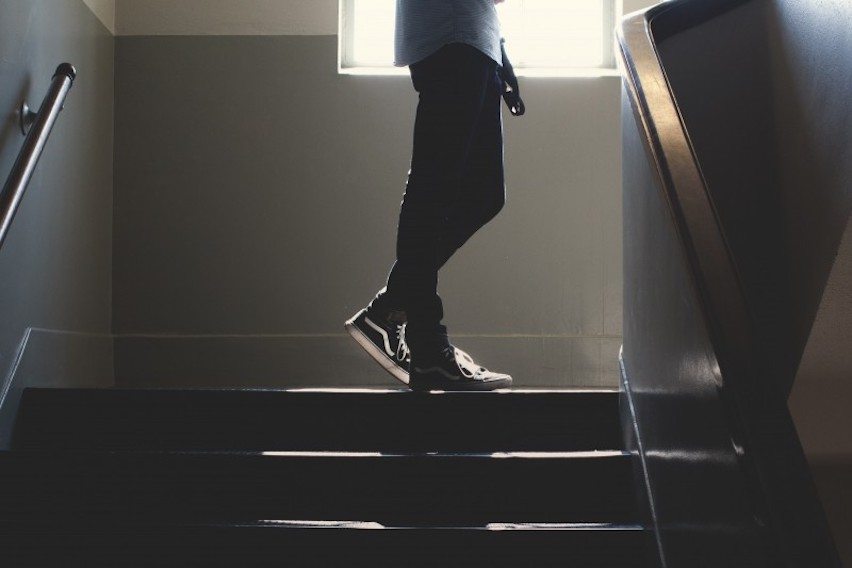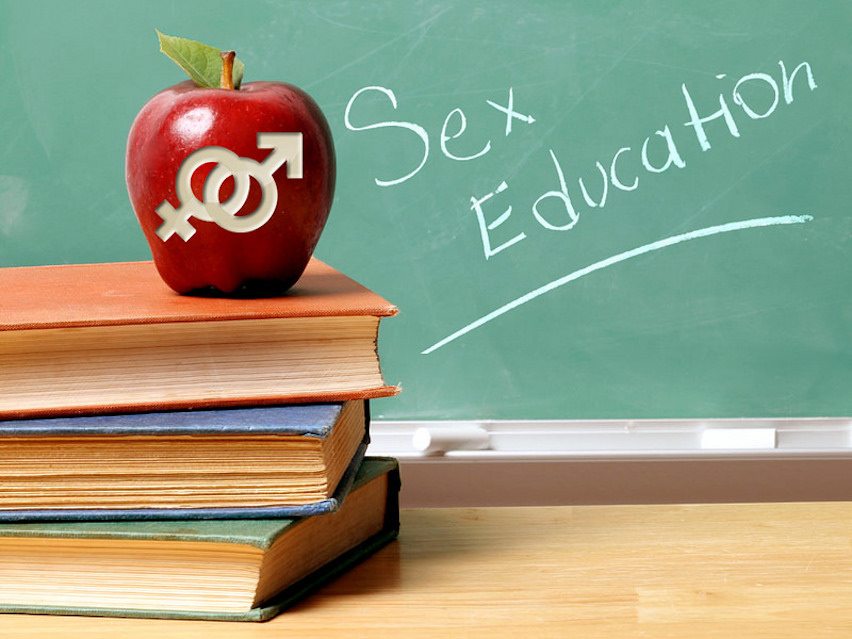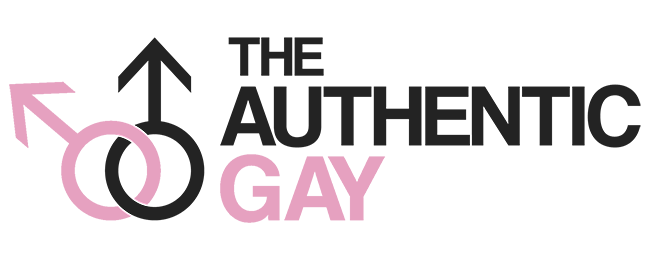Sex Ed Wasn’t Inclusive Then – It Needs To Be Now

The following article was written by David Cusick, one of our guest writers.
Like most high-schoolers, I didn’t really look forward to my sex ed class. To me, it was going to be something uncomfortable involving awkward lessons and a combination of even more awkward and gross pictures. I was going to be stuck in a classroom learning about a topic that still made the guys smirk and the girls blush. In reality, I guess it wasn’t all that bad, although I wasn’t wrong on the pictures part. But what did I really learn?

My High School Experience
Let’s go back for a minute and set the scene. The year was 2005 and I was a sophomore in high school in the central part of North Carolina. Although I was probably 15 years old at the time, I hadn’t had any real sexual experiences yet. I was the quiet kid in cargo pants and an oversized hoodie every day. I generally sat in the back of class and didn’t have much to say. I played way too many video games, my hair was too shaggy for a guy, and I completely lacked any confidence when it came to dating or even approaching someone. Hell, I hadn’t even had my first kiss yet. With all of that said, I came into my health class more or less a blank slate. Sure, I had seen some porn on the internet, but that was about the extent of my sexual education.
When it came to the sex ed part of my health class, I was probably behind most of my classmates in terms of overall knowledge. I went to a private Christian school, and the middle school “talk” for us involved something around scripture and marriage. I remember one part specifically about “being knitted in our mother’s womb.” My classmates definitely had a different experience. Most had a little more of a standard “birds and the bees,” or so I was led to believe.
As far as what I learned, I think that besides the graphic pictures of STDs and their effects, the only other thing I remember from sex ed is a funny comment my teacher made about condoms. Surprisingly, it didn’t involve anything around rolling one on a banana. At one point, my teacher, a middle-aged woman, made some comment on men complaining about having to wear condoms. She said men would “whine” and say they didn’t get any feeling while wearing them, but she shouldn’t see how that was true with such a thin piece of latex. For some reason, that’s stuck with me 12 years later.

LGBT Topics Were Left Unmentioned
While I don’t remember much of what was taught, I definitely remember was wasn’t taught — anything about LGBT+ topics. And sadly, I know that I’m not alone in that. I recently came across a study from Bespoke Surgical, an advocate for LGBT+ healthcare, that showed that 75% of the people polled didn’t learn about LGBT+ intercourse or relationships in their sex ed class. That’s a damn shame and a sad reality. But, as the article notes, only 12 states require discussion of sexual identity. In 2006, I have to believe it was even less.
Thinking back now, I’m beyond disappointed that my school didn’t cover same-sex topics in my health class. It actually makes me a little mad. And I say that for more than one reason. There is the issue of equality – whether gay, straight, bi, or something else, these are people, and young people at that. They should get the same education as everyone else. There’s also a sense of strong disappointment in my hometown, which is known for being progressive.
In regards to the issue of equality, it sadly wasn’t something I thought of at the time. Now, I don’t actively blame my teenage self for not realizing this. That is not to excuse it, but looking back now, I can see why the lack of inclusivity was wrong. Sex education is there for young people to learn. It’s a time for students to be taught how things work and the risks of sexual intercourse and sexual activities. And that’s not to say not have sex. Sex is often a wonderful thing that can bring two people closer. But, the reality is that there can be negative effects and students (and young people in particular) should be taught them.

School Should Prepare Students for “Real World” Situations
There was a headline that recently gained a lot of attention on this theme. It was from a study that showed that queer girls in high school didn’t know that they could get STDs through lesbian sex. That’s something that shouldn’t happen. In an age where more people are coming out and sexuality is more fluid than ever, younger people need to be taught the correct information. Otherwise, what’s the point? School, and especially public school, should be a place for everyone to learn, ask questions, and get the right information. That’s why we go to school. I believe that high school especially, in part, should prepare you for “the real world.” It should teach you some of the life skills and knowledge that will apply outside of a classroom and outside of a job. One of those needs to be correct sexual health. Students deserve that.
Another one of the more interesting stats from the Bespoke Surgical survey was the difference in answers between straight and LGBT individuals on whether LGBT+ topics were covered in school. The survey found that straight people generally responded that they did cover those topics in class at a higher rate than LGBT respondents. As the author of the survey write up noted, does this hint that straight people believed LGBT+ topics were sufficiently covered, when in reality, they were only covered on a surface level or at a glance? Sadly, at my school, I don’t remember them being covered at all.
That’s another reason why I’m so incredibly disappointed in my sex education classes – my hometown. I’m most disappointed because I supposedly came from a liberal city in an otherwise mostly red state. I was born and raised in Chapel Hill, North Carolina. It’s known for being a progressive city. One of our senators, Jesse Helms (a Republican), once said in regards to North Carolina building a new state zoo, “Why build a zoo when we can just put up a fence around Chapel Hill?” And while funny and somewhat irreverent, the fact is that Chapel Hill is known for being different, especially within North Carolina. It’s known for promoting equality and preaching inclusiveness and diversity. In fact, there was even a Diversity Day at my high school for a number of years. During this day, there were no normal classes but instead different lectures and speakers talking on a variety of progressive topics. While the day had it’s flaw for other various reasons, the overall concept was a good one: Expose students to different people and different ways of life.

Today’s Students Deserve a More Contemporary Learning Agenda
Even in a generally accepting environment like Chapel Hill, LGBT+ topics were not taught in public school. And so while that is disappointing and it was a let down to the students at my school, it makes me think about other areas of the state and the country. If my town and my school didn’t teach anything on those topics with how progressive they proclaimed to be, how did other schools fare? Did they teach nothing? Abstinence? Or even worse, that homosexuality is a sin? While it’s not acceptable that my school didn’t include the LGBT+ community, at least they didn’t portray it as negative. They just didn’t portray it at all.
So, ultimately my sex ed class wasn’t the most useful. The fact that all I can really remember years later are some graphic pictures and a quip from my teacher about condom use is fairly telling. I can’t imagine that the LGBT+ students in my school had a good experience at all. They were ignored completely. Their way of life wasn’t included in the curriculum. Sadly, I bet this wasn’t the first time they had felt like that, nor would it be the last.
I always try to be a positive person and see a silver lining when possible. When I think back on my high school experiences and sex ed in particular, I have to remember that it was over a decade ago. That doesn’t excuse the absence, but instead puts things into perspective. Gay marriage, for example, wasn’t close to be legal on a national level. I’ll be honest, I’m not sure what my high school is teaching now, but I sure as hell hope it includes LGBT+ topics. Public school needs to be a place where all students are accepted. It needs to be a place where all students can ask questions. It needs to be a place to learn. As we more further and further into the new millennium, I sincerely hope that LGBT+ individuals get those kinds of opportunities. There have been great strides made in the last decade when it comes to equal rights, but there is still much to do. It’s my hope that our education system allows all students to be treated the same.
David Cusick
David is a born-and-bread North Carolinian who currently lives in the Triangle area. When he’s not at his 9-5 or writing, he’s usually hanging out with his dog, generally considered his pride and joy.
